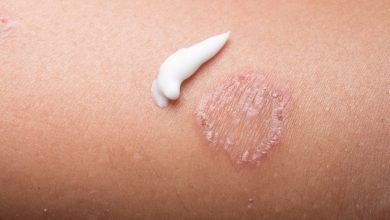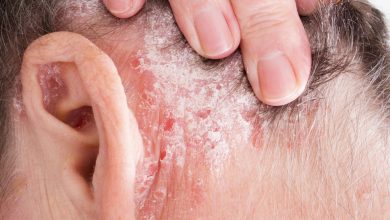psoriasis
What Is Psoriasis?
Psoriasis (suh-rye-ah-sis) is a condition that causes the body to create new skin cells in days as opposed to weeks. Since these cells pile up on the surface of the skin, you might see thick, scaly patches. These thick, scaly patches that develop on the skin are known as plaques. Approximately 80% – 90% of people living with psoriasis get plaques.
Plaque psoriasis is the most frequent type of psoriasis. Plaques can appear anywhere on the skin, but you are most likely to find them on the:
- Knees
- Elbows
- Scalp
Plaques have a tendency to vary in size. They may appear on the skin as one patch or combine together to cover a large area of skin. Regardless of the size, plaques are usually itchy. Without therapy, the itch can get intense. Many people notice that their skin stings, burns, or feels tight and debilitating.
Most people who have psoriasis experience these symptoms. That’s true regardless of the type of psoriasis you have, with one exception. Children who have guttate (gut-tate) psoriasis are fortunate that their their psoriasis goes away and they don’t have to suffer their entire life from the symptoms.
Since psoriasis tends to be a lifelong disease, it can help to learn about it and see a board-certified dermatologist. Some things to learn are:
- What causes your psoriasis?
- How to prevent a flare up?
- Sticking to a Fantastic psoriasis skin care routine.
- Applying medication when required.
Seeing a board-certified dermatologist has its advantage. Psoriasis can increase your chance of developing certain diseases, such as psoriatic arthritis or diabetes. Your dermatologist may watch for early signs of disease. If you develop another disease, early treatment will help stop the disease from progressing. When you visit a dermatologist for your psoriasis, your can discuss the type of psoriasis you have and treatment.

